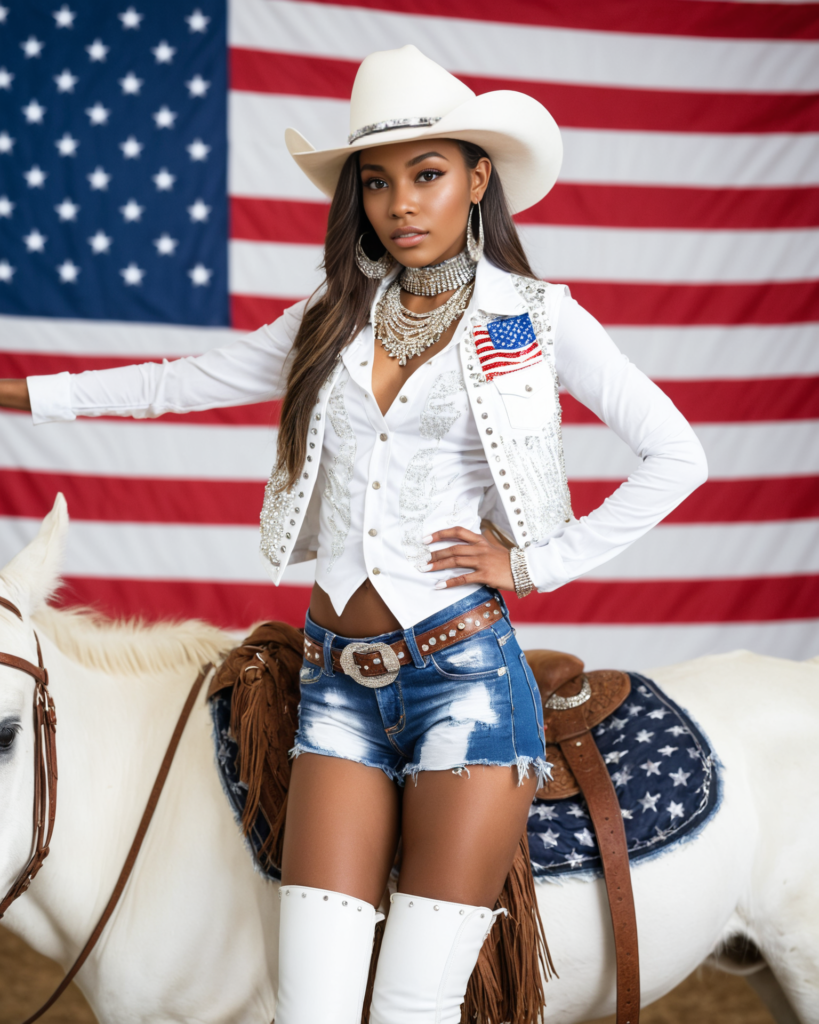With the world in turmoil, it’s easy to understand how Beyoncé’s visuals—a Black cowgirl on a white horse waving an American flag—might evoke mixed interpretations. On one hand, the imagery could be seen as an expression of nationalism. On the other, it’s deeply embedded with nuance, particularly given America’s fraught history with race. For Black Americans, who have historically been oppressed and othered, these visuals carry a message far beyond patriotism; they speak to resilience, ownership of culture, and a redefinition of what it means to be American.
The Nuance of Nationalism and Black Pride
The concept of nationalism often excludes Black Americans, who have historically been denied full citizenship and equal participation in the nation’s promises. Despite this exclusion, Black Americans have consistently shown a form of patriotism through their contributions to the nation. Take, for example, the creation of Memorial Day, which originated as a tradition by formerly enslaved Black people honoring fallen soldiers after the Civil War. This act is a testament to the deep connection and contributions of Black Americans to the fabric of the nation.
Beyoncé’s imagery in her visual storytelling serves as a reclamation of that narrative. By placing herself as a cowgirl on a white horse, she disrupts stereotypes and challenges the exclusionary narrative of American identity. Historically, the cowboy—a symbol of rugged individualism and Americana—has been whitewashed, erasing the significant contributions of Black cowboys in the West. Beyoncé’s cowgirl embodies the Black American experience that has been integral to shaping America while often being written out of its history books.
Exclusion in American Culture
The exclusion of Black Americans from the cultural spaces they helped create is not new. The country music genre, for instance, owes much of its roots to Black musical traditions, yet Black artists are often overlooked or outright ignored in mainstream country music. Beyoncé herself faced such exclusion when her song “Daddy Lessons,” a country-infused track from her album Lemonade, was controversially rejected by the Country Music Association. This incident highlights the ongoing erasure of Black contributions from cultural spaces they rightfully own.
By waving the American flag, Beyoncé reclaims it as a symbol of Black resilience and pride. Her actions demand recognition of the foundational role Black Americans have played in shaping every facet of American culture, from music to fashion to dance.
Looking Ahead to January 14, 2025
As we approach January 14, 2025, anticipation builds around what Beyoncé has planned. Her ability to use her platform to spark conversations about identity, race, and culture is unmatched. Whatever she unveils will undoubtedly continue the dialogue about what it means to be both Black and American in a nation that often struggles to reconcile the two.
In these moments of reflection, Beyoncé’s work reminds us of the power of art to challenge perceptions and rewrite narratives. Her cowgirl imagery is not merely a spectacle; it’s a statement. It puts America on notice that the creators of its culture, the shapers of its identity, will not be sidelined or silenced. Instead, they will ride boldly into the future, claiming their rightful place in history.
